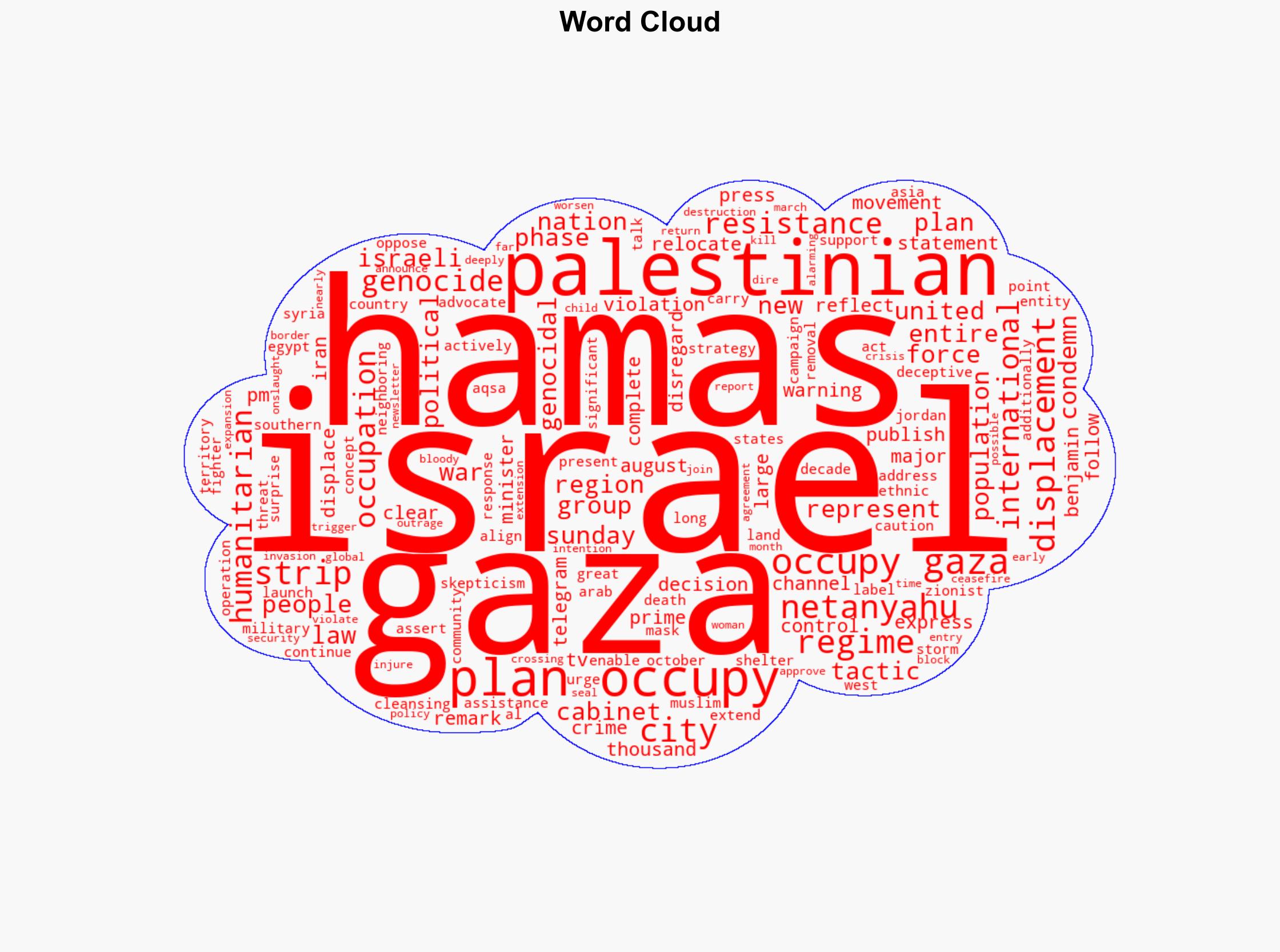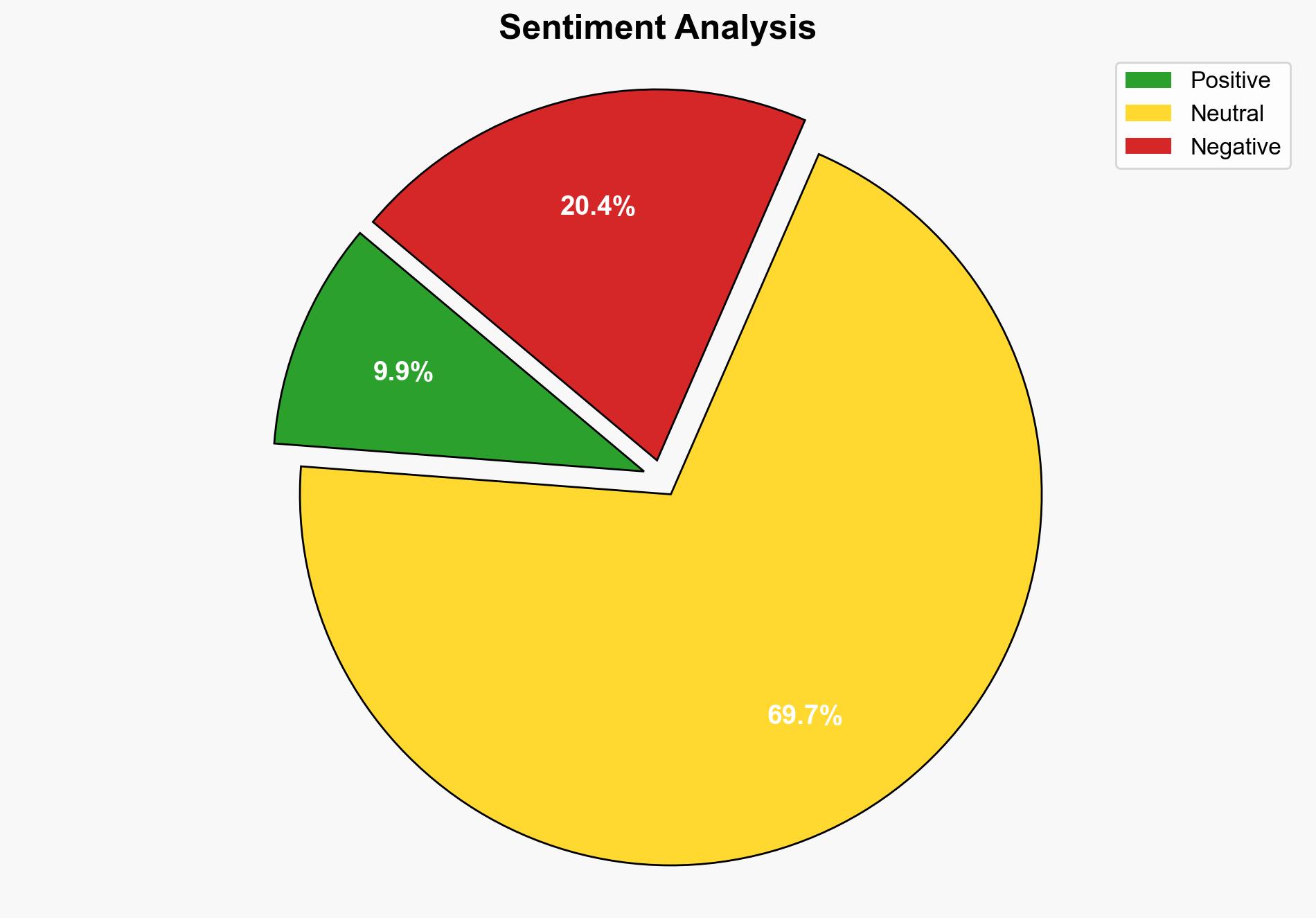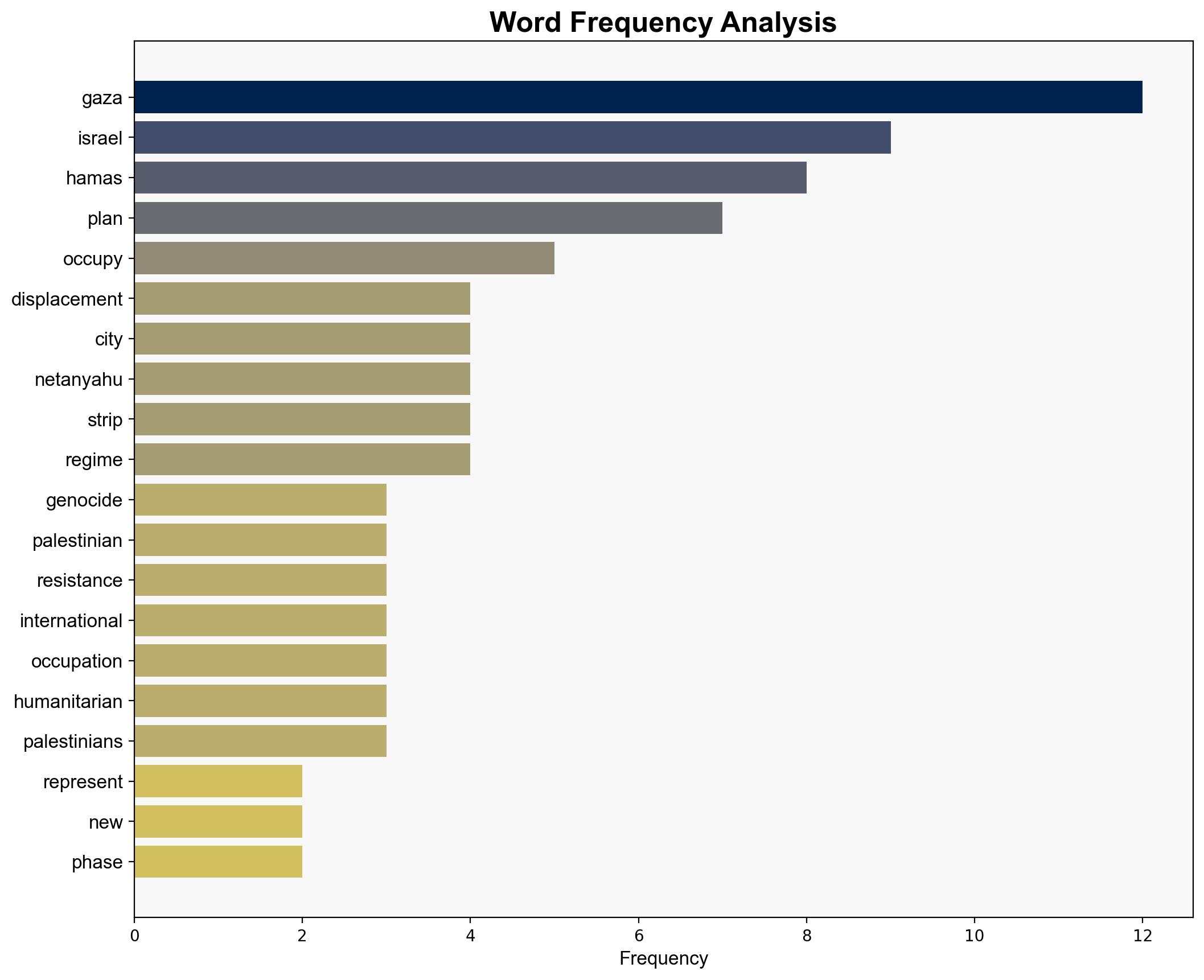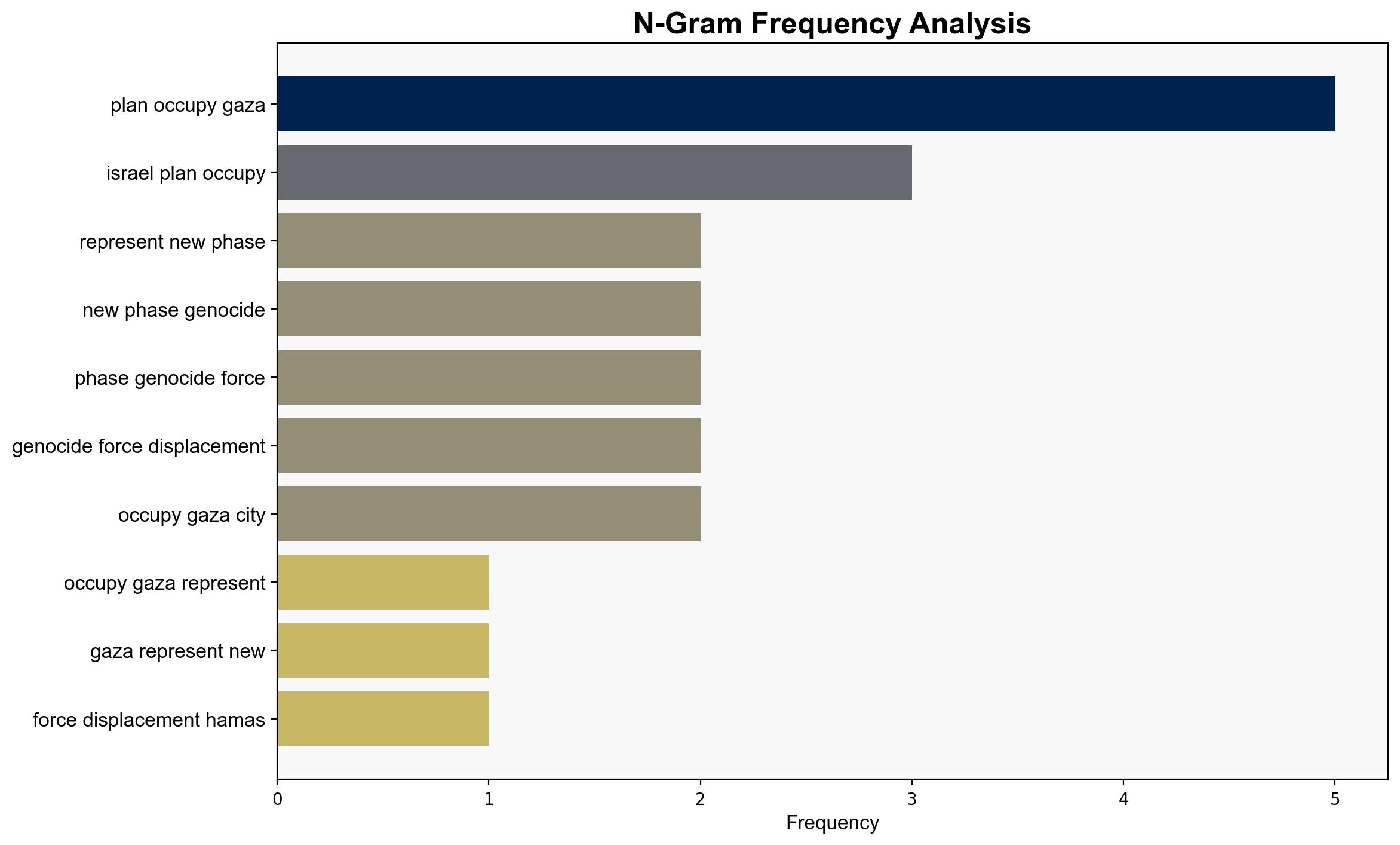‘Israel’s plan to occupy Gaza represents new phase of genocide forced displacement’ Hamas – Globalsecurity.org
Published on: 2025-08-18
Intelligence Report: ‘Israel’s plan to occupy Gaza represents new phase of genocide forced displacement’ Hamas – Globalsecurity.org
1. BLUF (Bottom Line Up Front)
The analysis suggests two primary hypotheses regarding Israel’s intentions in Gaza. The first hypothesis, supported by Hamas, posits that Israel’s actions are a continuation of a genocidal policy aimed at forced displacement. The second hypothesis suggests Israel’s actions are primarily driven by security concerns. The evidence more strongly supports the first hypothesis due to the historical context and international reactions. Confidence level: Moderate. Recommended action: Increase diplomatic engagement and pressure to ensure compliance with international law and humanitarian standards.
2. Competing Hypotheses
1. **Hypothesis 1**: Israel’s plan to occupy Gaza is a strategic move to further a policy of genocide and forced displacement, as claimed by Hamas. This hypothesis is supported by historical patterns of territorial expansion and the rhetoric from Israeli leadership.
2. **Hypothesis 2**: Israel’s actions are primarily motivated by security concerns, aiming to neutralize threats from Hamas and other militant groups. This hypothesis considers Israel’s stated security objectives and past military operations.
Using the Analysis of Competing Hypotheses (ACH) 2.0, Hypothesis 1 is better supported due to the alignment of historical actions and international criticism with Hamas’s claims.
3. Key Assumptions and Red Flags
– **Assumptions**: Hypothesis 1 assumes that Israel’s actions are not primarily defensive but expansionist. Hypothesis 2 assumes that security threats are the primary drivers of Israeli policy.
– **Red Flags**: The source of the information is biased, as it originates from Hamas, which may exaggerate claims for political gain. There is also a lack of independent verification of the alleged genocidal intent.
– **Blind Spots**: Limited insight into internal Israeli decision-making processes and potential diplomatic negotiations.
4. Implications and Strategic Risks
– **Geopolitical**: Escalation of tensions in the region could lead to broader conflict involving neighboring countries.
– **Humanitarian**: Potential for a significant humanitarian crisis if displacement occurs without adequate international response.
– **Economic**: Disruption in regional trade and potential sanctions could impact Israel’s economy.
– **Psychological**: Increased radicalization and recruitment by extremist groups in response to perceived injustices.
5. Recommendations and Outlook
- Engage in multilateral diplomacy to de-escalate tensions and ensure humanitarian access to affected areas.
- Monitor and document human rights violations to hold accountable those responsible.
- Scenario Projections:
- Best: Diplomatic resolution and withdrawal of occupation plans.
- Worst: Full-scale conflict involving regional actors.
- Most Likely: Prolonged occupation with intermittent conflict and international condemnation.
6. Key Individuals and Entities
– Benjamin Netanyahu
– Hamas
– United Nations
7. Thematic Tags
national security threats, geopolitical conflict, humanitarian crisis, regional focus





